Introduction
This article is based on a webinar on nutrition and lifestyle advice for those trying to conceive given by Orla Walsh on behalf of her practice, Orla Walsh Nutrition (OWN), and Merrion Fertility Clinic in March 2023. OWN is the team of Registered Dietitians recommended by our Clinic.
Orla is a registered dietitian with numerous qualifications and has been working in the area of fertility for over seven years. She established her private practice around 12 years ago, where she initially considered herself a general practitioner and sports dietitian. However, her passion for fertility grew over time, and it became a natural focus for her, especially as she became more involved in women’s health.
As a practitioner, Orla is dedicated to helping people enhance their overall health and wellbeing through proper diet and nutrition. She has observed that women frequently seek her advice on improving their fertility and realised that there is a real need for specialised guidance in this field.
Orla has since concentrated more on fertility and women’s health in her practice. She has helped numerous women who have struggled with fertility issues and assisted them in making dietary and lifestyle modifications that have resulted in successful pregnancies.
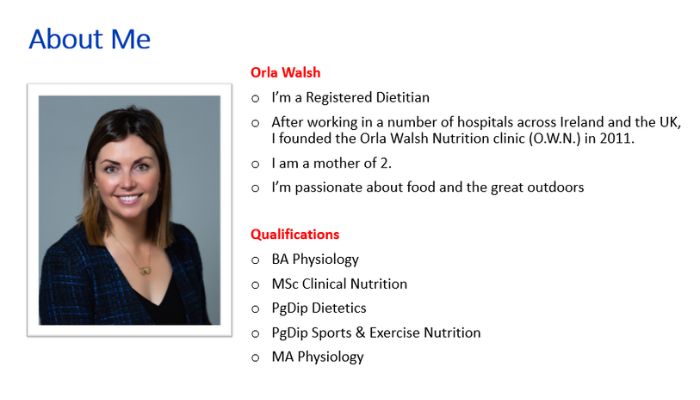
Connection Between Nutrition and Fertility
Both men and women can benefit from an improved diet when trying to conceive. Nutrition can help with ovulation disorders in women and can also improve sperm quality in men. A healthy diet can significantly improve sperm count, motility, and concentration, which are all important factors in fertility.
It’s important to note that good nutrition is not a magic solution for fertility issues. However, a healthy diet can certainly improve the chances of successful conception and a healthy pregnancy. By working with a qualified dietitian or fertility specialist, you can receive tailored advice on the best dietary choices for your specific situation.
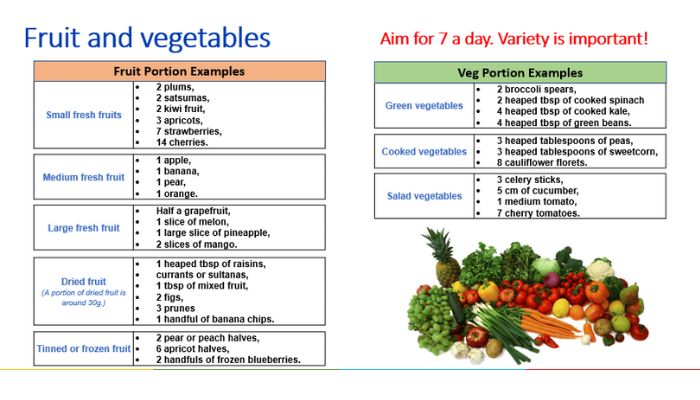
The Mediterranean Diet
If you’re trying to improve your fertility, you might want to consider following a Mediterranean diet. According to Orla, this diet is a great way to incorporate healthy, nutritious, unprocessed foods into your meals. The Mediterranean diet is built on the foundation of lots of colourful fruits and vegetables with the addition of some whole grain carbohydrates and unprocessed proteins such as lean meat, legumes, fish and dairy. It also includes regular consumption of extra virgin olive oil, nuts and seeds.
When it comes to incorporating fruit and veg into your diet, Orla recommends aiming for at least 5, if not 7, portions a day, providing a rainbow of colours. Each colour provides different antioxidants and special plant compounds which are important for reducing inflammation and oxidative stress within the body. Two green vegetables a day and one citrus fruit a day are particularly encouraged, as they help meet folic acid (folate) requirements and supply magnesium, which indirectly supports fertility through its involvement in sleep and the production of energy and DNA.
For men, Orla recommends consuming tomatoes each day. Studies have shown that tomatoes can positively impact sperm health in males.
It is recommended to wash fruits and vegetables before consuming them to remove any pesticide residue. It is worth noting that frozen produce is as good as fresh.
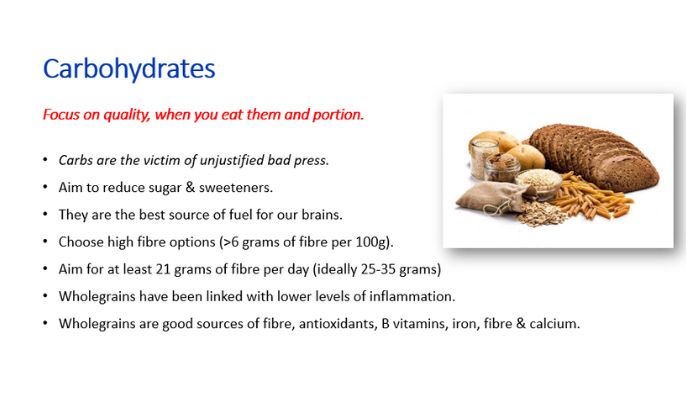
Carbohydrates & Fertility
Carbohydrates play an essential role in fertility and extreme low carbohydrate diets, such as keto, are not recommended. It is best to aim for moderation and focus on the quality of carbohydrates consumed, as well as spreading them out across the day.
One should aim to consume a similar amount of carbohydrates at breakfast, lunch and dinner, while focusing on whole grains rather than refined carbohydrates. Whole grains have been linked to reducing inflammation in the body, which is important for fertility, and they also provide fibre, antioxidants, B vitamins, iron and calcium.
You should try to reduce your intake of processed or refined carbohydrates which can be low in fibre and high sugar intake. Although non-sugar sweeteners can be preferable to sugar, it’s important to limit how much they appear in the diet.
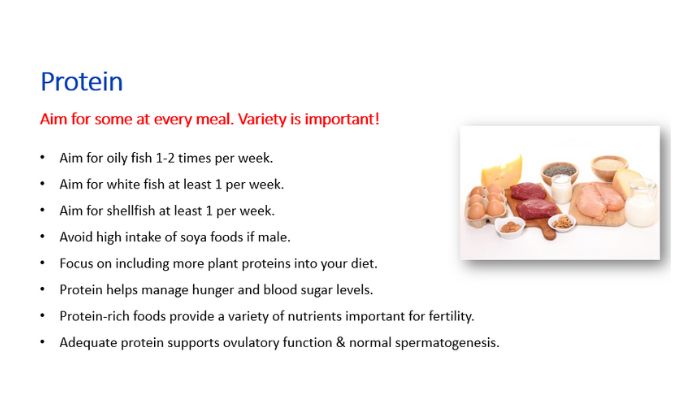
Protein & Fertility
Orla encourages variety in protein intake, with a focus on fish. On average Irish people only eat one bite of fish per week. So, certainly not enough to fulfil one serving.
Orla suggests consuming oily fish once or twice a week, white fish at least once a week, and shellfish at least once a week. Oily fish is high in omega-3 fatty acids, which is crucial for fertility, while white fish is an excellent source of iodine, a lot of which is found just beneath the skin of fish.
Shellfish is a good source of zinc, which is one of the more recognised ingredients for a fertility diet due to its involvement in the production of DNA, cell division, the maintenance of normal testosterone levels in the blood and protection from oxidative stress. For men with sperm count issues, it may be overly cautious but advisable to reduce soy intake despite being an excellent source of plant protein.
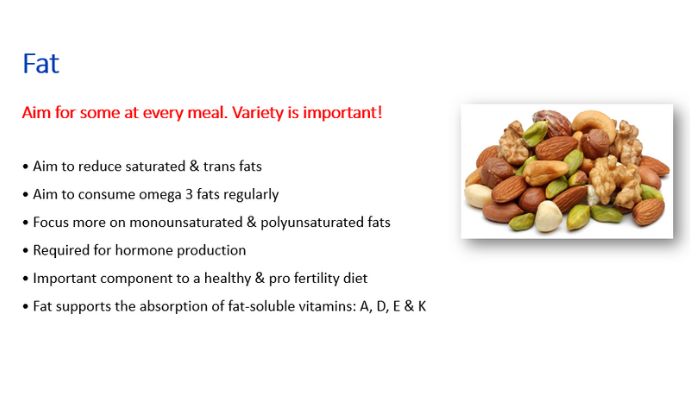
Fats & Fertility
When it comes to following a diet that supports your fertility, fat is an important part that shouldn’t be cut out from one’s diet. Sometimes people try to lose weight before conceiving by avoiding fats but this may not be the best approach. Fats provide unsaturated fats and fat-soluble vitamins such as A, D, K and E that are crucial for hormone production, and they also provide a great deal of antioxidants.
It is recommended to aim for some fats with each meal and aim for a variety. In particular, it is suggested to focus on nuts and seeds, as well as extra virgin olive oil.
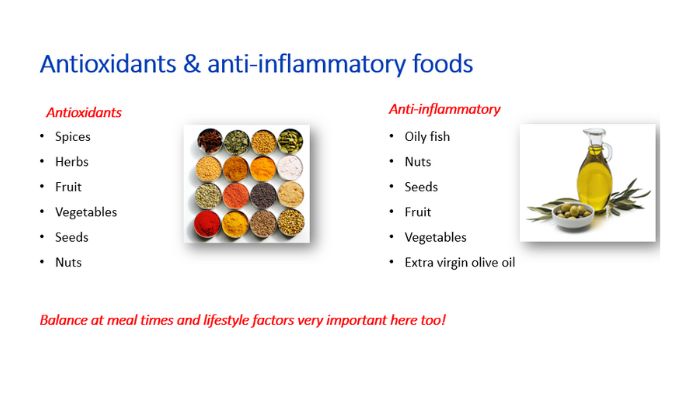
Antioxidants and Anti-Inflammatory Foods & Fertility
Antioxidants and anti-inflammatory foods are important components of a fertility diet. Herbs and spices are the real powerhouses when it comes to antioxidants and so it is recommended to include some herbs and spices with every meal. For instance, chives can be added to eggs for breakfast, basil to tomatoes, and nutmeg to mushrooms at dinner. Cinnamon or ginger can be used for porridge. Dry herbs and spices are equally as good as fresh ones.
Fruits, vegetables, and nuts and seeds also contain many antioxidants. When it comes to anti-inflammatory foods, oily fish, especially those high in omega-3, nuts and seeds, fruits and vegetables, and extra virgin olive oil should be considered.
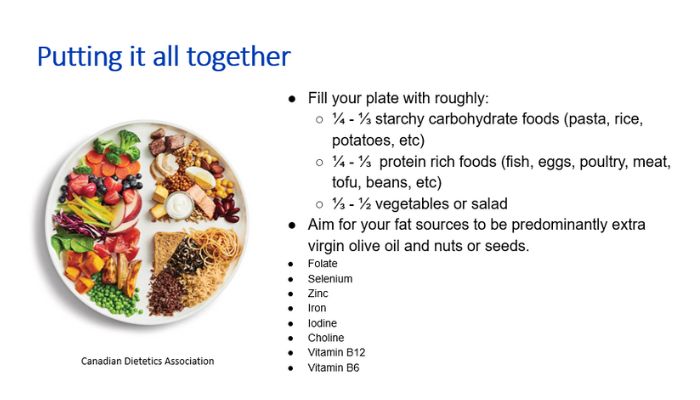
Plate Model & Fertility
The Canadian Dietetics Association has developed a plate model that can guide individuals on the right proportions of food to consume. According to the model, half of the plate should be filled with fruit or vegetables, a quarter with protein, and a quarter with whole grain carbohydrates. It is advised to aim for a variety of colours in fruits, vegetables, and to choose lean proteins or more plant-based options.
When trying to adhere to the plate model, consider the example of a dinner consisting of potatoes, meat, and vegetables. This meal corresponds to the plate model. However, meals such as spaghetti Bolognese or chicken curry may not fit this balance as they may be excessively rich in carbohydrates. It is not necessary to prepare new recipes or significantly alter one’s eating habits, but rather to incorporate more fruits and vegetables in the diet. Adding frozen vegetables to the side of many meals is an easy way to achieve this.
To ensure a balanced meal, imagine a bowl with fruits and vegetables at the bottom. Try adding fruit or vegetables first to a bowl of cereal, followed by a whole grain cereal and milk. This technique naturally encouraged meals that are more balanced than if cereal were added first.
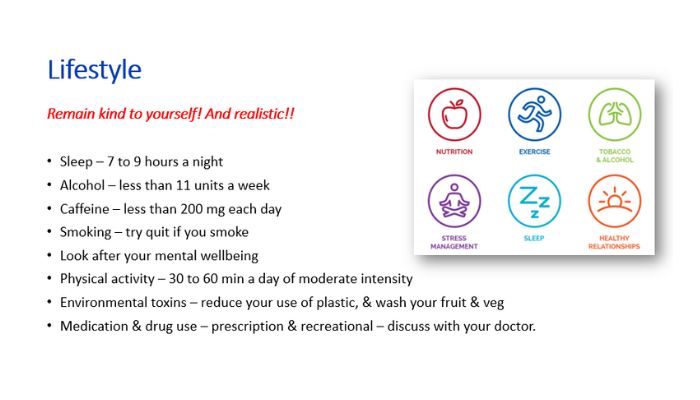
Lifestyle & Fertility
It is important to also consider lifestyle when trying to improve fertility.
Sleep is a crucial factor in fertility, as the hormone melatonin plays a key role in the reproductive process. Lack of sleep has been shown to negatively impact fertility, which is why it’s recommended to aim for seven to nine hours of sleep per night.
When it comes to alcohol, it’s recommended to consume less than 11 units per week, which is equivalent to less than one and a half bottles of wine or 11 gin and tonics. While some recommend abstaining from alcohol altogether when trying to conceive, this may not be realistic for everyone.
Caffeine intake is also an important factor to consider, particularly for women, with less than 200 milligrams per day being recommended. This equates to less than four cups of tea or two cups of coffee per day. However, it’s worth noting that caffeine content can vary greatly between different coffee shops and coffee beans.
Smoking should be avoided when trying to conceive.
Physical activity is important for overall health and fertility, with 30 to 60 minutes of moderate intensity exercise per day being recommended.
Finally, reducing exposure to environmental toxins may also improve fertility. This can be achieved by washing fruit and vegetables and reducing plastic use. While it’s impossible to avoid all environmental toxins, taking these simple steps can significantly reduce exposure.
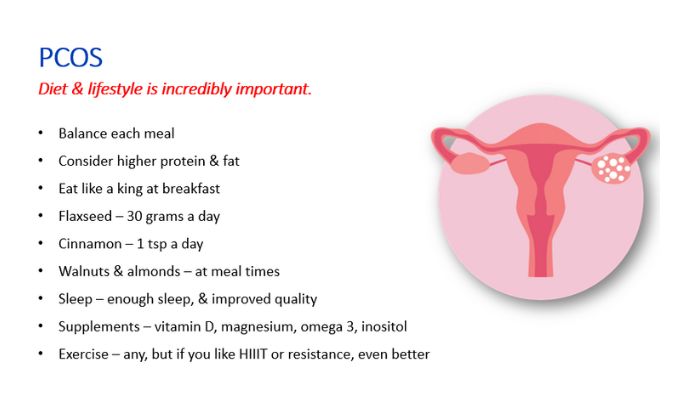
PCOS & Fertility
Polycystic ovary syndrome (PCOS) affects a large number of women. A focus on diet and lifestyle is crucial to manage PCOS, and supplements can also be helpful. One of the first supplements that is often recommended for women with PCOS is vitamin D, and magnesium is often supplemented due to a higher prevalence of deficiency in women with PCOS. Omega-3 supplements may also be recommended if fish intake cannot be increased. Inositol and other supplements may also be considered.
Some spices and foods that are commonly found in your cupboard can also be helpful for managing PCOS. Cinnamon, which is often overlooked, has been shown to be effective in research studies. Just a teaspoon a day, added to your porridge or coffee, can be beneficial. Walnuts, almonds and flaxseed have also been shown to be helpful in research studies.
Carbohydrate intake is also considered when managing PCOS, with moderate intake recommended. Pairing the carbohydrate rich foods with healthy fats and protein is also advisable.
Exercise is also important, and walking is a great way to get started. If the individual is open to high-intensity or strength training exercise, this can also be incorporated into their routine.
Sleep is crucial, as it helps to improve food choices and increase exercise the next day, while also reducing insulin resistance.
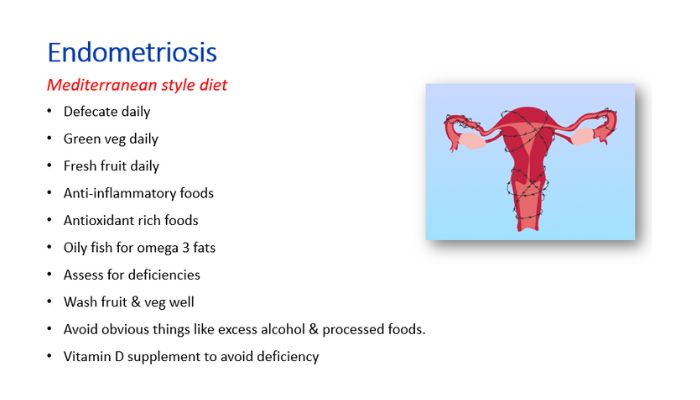
Endometriosis & Fertility
Individuals with endometriosis are encouraged to follow a diet rich in fibre, drink plenty of water and follow a fitness regime to help manage pain and gut symptoms. Green vegetables are important for the folate and magnesium they contain, while fresh fruits are essential for their antioxidant and vitamin C content. It is important to check for deficiencies such as iron, especially for women with heavy periods.
Try to reduce the environmental toxins by reducing use of plastic and washing fruit and veg. Vitamin D levels should be checked and supplemented, if needed.
If you are under the supervision of a dietitian, they may give you a gluten-free diet or a low FODMAP diet plan to help with gut symptoms associated with endometriosis and also see if that helps with pain management, which can indirectly impact fertility.
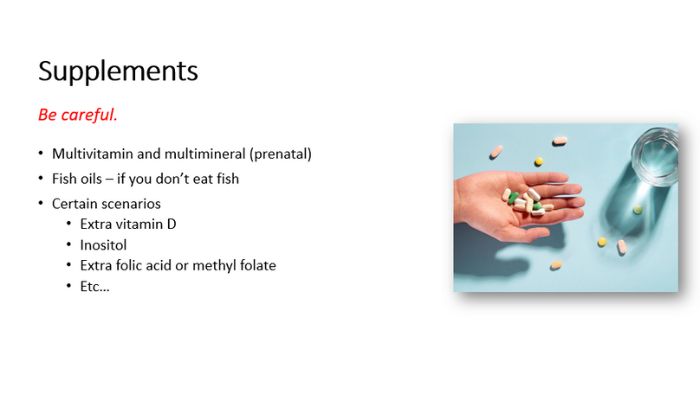
Supplements & Fertility
When it comes to supplements, it’s important to be cautious. There are many people out there trying to sell you supplements that haven’t been proven to work, which can be expensive and even harmful. If you’re taking a lot of supplements, you may be doubling up on certain nutrients, so it’s best to stick to a few key ones. Generally, we recommend a multi-mineral/multi-vitamin supplement, fish oils if you don’t eat fish, and in certain cases, extra vitamin D.
For those with polycystic ovary syndrome (PCOS), we suggest inositol supplements. Additionally, a daily intake of 400mg of folic acid is usually enough for most people, but some may require more, which your doctor can advise on. While there is a lot of hype around methyl folate at the moment, it’s important to note that it’s not always necessary or suitable for everyone.
There are many supplements marketed towards improving fertility, but it’s crucial to be cautious and not to buy into them without consulting a healthcare professional first. Not all supplements are helpful, and some can be a waste of money.
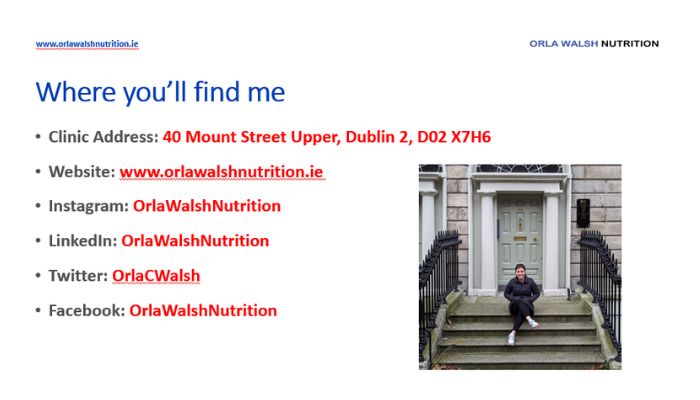
Conclusion
In the webinar Orla highlighted the critical role of nutrition and lifestyle in improving your fertility. She recommends following a Mediterranean-style diet, focusing on whole grains, unprocessed proteins, and plenty of fruit and vegetables. A balanced intake of carbohydrates, protein, and healthy fats is crucial, and sweeteners and processed foods should be avoided. While good nutrition is not a magic solution, it can certainly improve your chances of a successful conception and pregnancy.
You can contact Orla at orlawalshnutrition.ie
